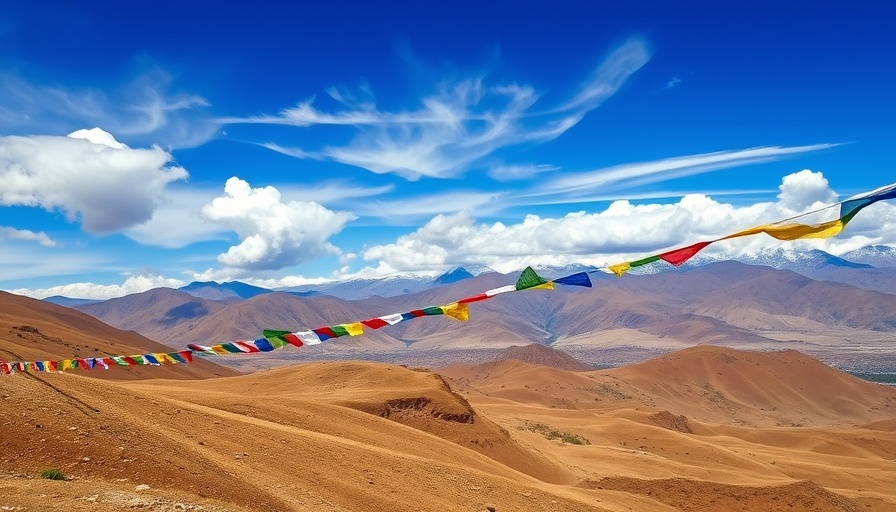
A Surprising Discovery in the Tibetan Wilderness
The majestic Himalayas, often lauded for their stunning vistas and challenging terrains, have now caught the world's attention for another reason: the sighting of a rare clouded leopard. Traditionally associated with the lush tropical forests of Southeast Asia, this elusive species has been spotted approximately 620 miles from its known habitat. This unprecedented revelation not only piques the interest of wildlife enthusiasts but also raises questions about the adaptability of species in response to changing climates.
The Journey of Discovery
In the summer of 2023, researchers embarked on a mission to monitor elusive wildcats within the Qomolangma National Nature Reserve in southern Tibet. They deployed a network of 200 infrared cameras that captured thrilling footage of the clouded leopard on two separate occasions in September: the 9th and the 16th. This groundbreaking sighting marks a significant milestone in conservation efforts, contributing vital data for wildlife researchers and conservationists.
Climate Adaptability: The Clouded Leopard's Unexpected Journey
These sightings highlight a critical conversation around wildlife adaptability. As human-driven climate change transforms habitats, species such as the clouded leopard may find themselves venturing beyond their usual territories. Understanding the implications of these movements can inform our conservation strategies. While the clouded leopard is known for its flexibility in habitat selection, this adaptation in the heart of the Himalayas suggests a response to environmental shifts that demand further investigation.
The Human Impact: A Call for Conservation Efforts
The clouded leopard's discovery illuminates broader environmental issues, including the necessity for increased conservation efforts in fragile ecosystems. While the area may appear remote, the increasing encroachment of human activity in these regions poses a significant threat to wildlife. Countries like South Africa, known for their diverse wildlife and conservation initiatives, could serve as exemplars for protecting vulnerable species. Awareness campaigns and ecotourism can be leveraged to create a sustainable balance between human activity and wildlife preservation.
What Travelers Can Learn from This Discovery
This remarkable event invites travelers to rethink their perspectives on wildlife and ecosystems. For those planning trips to places known for rich biodiversity – such as South Africa's Kruger National Park or national parks across the globe – each journey can be an opportunity to engage with conservation efforts. Travelers can actively participate in responsible tourism that ensures their visits contribute positively to the locales they explore. By embracing ecotourism practices, explorers not only enjoy unforgettable experiences but also help protect wildlife and natural habitats.
Take Action: Support Wildlife Conservation
As news of the clouded leopard’s sighting spreads, it’s imperative for readers and fellow travelers to advocate for conservation initiatives across all corners of the globe. Whether it’s through donations, volunteering, or choosing eco-friendly travel options, each individual can make a significant impact. By supporting organizations dedicated to wildlife conservation, such as those focused on Southern Africa travel destinations or global conservation efforts, you can play a part in the ongoing fight to protect the delicate balance of our planet's ecosystems.
 Add Row
Add Row  Add
Add 




Write A Comment